
Many businesses hope Vietnam will reduce administrative procedures and invest heavily in digital infrastructure - Photo: HUY PHAM
So what is the biggest "order" they sent to the management agencies on the occasion of Vietnamese Entrepreneurs Day October 13?
Mr. Nguyen Ba Diep (co-founder of Financial Technology Group - MoMo):
Need to reduce compliance costs
From the business practices of enterprises, administrative barriers are significantly hindering the creative potential and competitiveness of the business sector.
We believe that the Government should prioritize solving the most important task to remove bottlenecks and create motivation for businesses to "strive" and develop, which is: reducing administrative procedures thoroughly, synchronously and effectively.
This is not only an urgent requirement from practice, but also a key factor to realize the goal of developing the private economy in the spirit of Resolution No. 68, contributing to building a transparent, dynamic business ecosystem in line with the national strategy.
As of October 2025, the total number of administrative procedures nationwide, including both central and local levels, is estimated at about 2,500 - 2,600 procedures. Despite many reform efforts, the administrative procedure system still has many shortcomings, specifically:
- Procedure processing time is long, on average 45 - 90 days for a procedure (especially licensing can take up to 12 months).
- The number of legal documents is increasing, an enterprise tends to be managed by many ministries and branches, leading to high compliance costs. Particularly in the field of science and technology, there are currently a series of laws regulating it, but the synchronous implementation of these laws and sub-law documents is an extremely big challenge, especially for small and medium enterprises.
- Being under the management of many ministries and branches makes compliance costs high when enterprises have to make many periodic reports to many different agencies (this cost accounts for about 5 - 10% of the revenue of small and medium enterprises - according to the VCCI report in 2023).
Therefore, the Government's priority in quickly removing barriers and simplifying administrative procedures will help businesses focus on business development, improve competitiveness, and contribute to the country's development.
Mr. Kelly Wong (General Director of VNG Group):
Invest heavily in digital infrastructure
From our perspective, Resolution 68 demonstrates the Government's strong commitment to developing the private sector, leveraging innovation as a driver of long-term growth.
We expect new policies such as Resolution 68 to help businesses accelerate: expand investment in research and development (R&D), test advanced technology, and provide practical applications for Vietnamese businesses to effectively transform digitally and compete regionally and globally.
We particularly see artificial intelligence (AI) as a core catalyst. On the consumer side, through Zalo AI, we are gradually changing the way tens of millions of people communicate, interact, and exchange work. On the enterprise side, our priority is to explore how AI can drive automation and process improvement, helping businesses operate more efficiently, flexibly, and competitively.
We expect Resolution 68 to be materialized in practical and feasible policies. We propose three key priorities:
Firstly, a clear legal framework creates conditions for businesses to test new technologies quickly and conveniently, without having to meet many procedures.
Second, invest heavily in digital infrastructure: AI Cloud or traditional Cloud; major languages, AI platforms... so that businesses, large or small, have the opportunity to access advanced technology.
Third, support long-term R&D and innovation through incentive mechanisms, investment funds and partner connections to encourage businesses to boldly start businesses and invest in technology.
These key points will truly create great conditions and opportunities for the private sector to make practical contributions to the economy, in line with the Government's expectations.
Mr. Matt Ryland (CEO of BritCham Vietnam):
Avoid inconsistency
The most common issues we hear from members of the British business community in Vietnam are concerns about inconsistencies in the business environment and lengthy administrative processes.
When we aim for certain goals, such as the determination to build an International Financial Centre (IFC), it must be noted that the "international" element in their name is very important.
When looking at large investments, whether in renewable energy or IFC, large corporations, do not want to be faced with lengthy and complicated processes where they do not know how long it will take to get a business license.
Vietnam has huge growth opportunities, but investors also have many other options. But BritCham 100% wants those investments to be made in Vietnam.
Ms. Kieu Ngoc Phuong (Deputy General Director of Tan Thanh Trading - Mechanical Joint Stock Company):
Dual policies needed for Vietnam's logistics industry
If we were to be "ordered" by the Government, the first thing we would want is to create a "national data backbone" for the logistics industry. This is a shared platform, connecting data from seaports, customs, toll stations, transport companies... in real time.
Second, the State should work with businesses to build an ecosystem to improve the quality of drivers. We need a national standard training program that not only teaches driving but also teaches safety, optimal vehicle operation and soft skills in logistics.
The combination of these two elements will create a synergy. Drivers will no longer have to drive based on experience and luck, but on accurate data. The waiting time will be reduced. Investing in people will create a solid foundation and investing in data will create a breakthrough.
Source: https://tuoitre.vn/don-dat-hang-cua-cac-doanh-nghiep-nhan-ngay-doanh-nhan-viet-nam-13-10-20251013080403894.htm









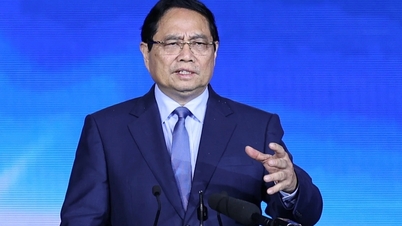





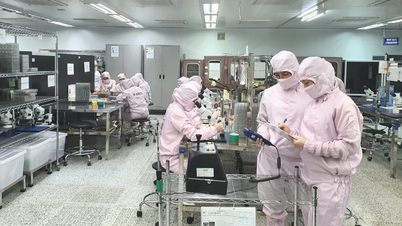

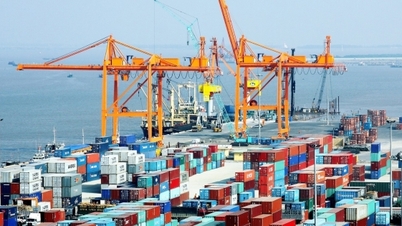









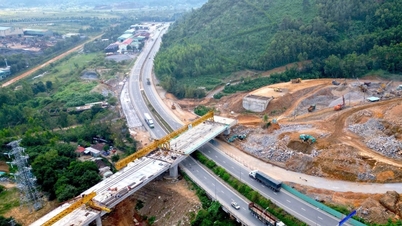
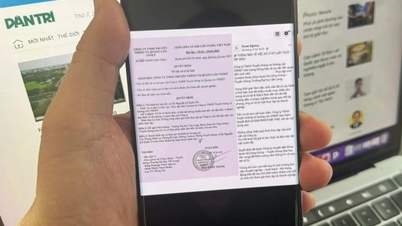




















































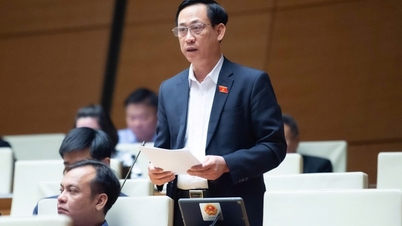
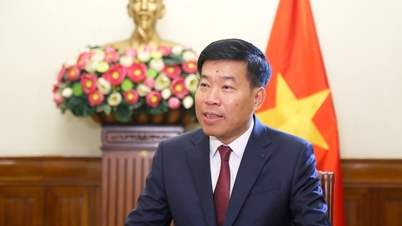






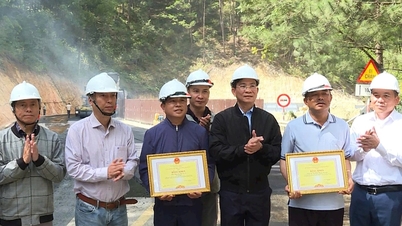

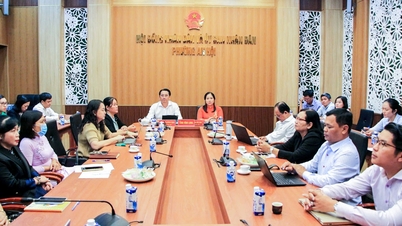
















Comment (0)